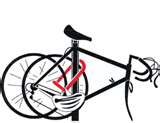Of the many essential skills in college, knowing how to write your professor is one that should not be overlooked. Whether for claiming the last seat in a class, getting answers to course questions, or generally  making a positive impression, a strong email can go a long way. The following is a simple framework from which you can base your own emails.
making a positive impression, a strong email can go a long way. The following is a simple framework from which you can base your own emails.
Starting out: can’t go wrong with “Dear”
Some say “Dear” sounds overly formal. It’s not! Using “Dear” is the most direct way of showing your professor an essential level of respect. While “Hi” can be appropriate in causal settings with your friends, never use it when emailing your profs for the first time.
Dear Professor Taylor,
Introduce yourself!
If you have never written to or met the professor in question, the best way to start the email is with a quick self-introduction. Keep it basic to things like your name, class year, and major (when applicable).
My name is Faisal Kirdar and I am a Senior majoring in Neuroscience.
Why are you writing?
A good second sentence will get right to the point: why are you writing? This is where you state your purpose. This should also be stated in the subject of the email in no more than 4 words.
I am writing to inquire if it is possible to go over a few course topics; in particular I am having trouble understanding molecular orbital diagrams.
If you have a question, be sure to ask it
Often the reason you’ll write your professors is to ask a question or several questions. It’s important not just to say I am writing to ask you about molecular orbital diagrams; you must also give something specific to which your professor can respond. If the question is very specific and can be answered quickly via email, ask it. If it requires more interaction, then the question should be geared toward scheduling an appointment to do so.
Is there a convenient time for us to meet this week?
Arm your professor with relevant info
Provide as much relevant information as you can. If you are requesting a time to meet, let them know your availability. This will make it easier for your professor to respond promptly.
I’m available Mondays and Wednesdays from 12-4 PM.
Tell them what you want them to do
Make it even easier for your professor to respond to you by finishing the note with a clear, polite instruction.
Please let me know what time is most convenient for your schedule.
End with a friendly and polite send off
It is important to end the email on a positive note and further demonstrate your respect for the professor. This ensures a strong impression and in some cases encourages the professor to respond more quickly.
**Additional advice from Dean Brown:
- If you haven’t received a response within a few days, don’t hesitate to resend your email with a note recognizing that they have may missed yours in the deluge of email they receive. Because this does happen, most people appreciate it–I certainly do–when a student kindly brings it to their attention.
- Don’t let an email stop you from contacting a professor, faculty advisor, dean or other source of support. You can always follow up immediately after class with a professor or go to office hours, which will be posted in course syllabi, on office doors, in their emails, or on department/office websites. If you can’t make office hours or would like a little more time than those allow (usually they are short visits), let them know that.
 after the drop/add period), the peer advisors (especially for study skills and planning), accessibility services (for a range of accommodations), the dean for international student affairs, the Writing and Math Workshops, the Quantitative Analysis Center, and the Language Resource Center.
after the drop/add period), the peer advisors (especially for study skills and planning), accessibility services (for a range of accommodations), the dean for international student affairs, the Writing and Math Workshops, the Quantitative Analysis Center, and the Language Resource Center. you need to regain your academic focus and figure out something that has been distracting you from your coursework, don’t hesitate to call Counseling and Psychological Services (CAPS) to set up an appointment with a therapist or contact one of the chaplains in the Office of Religious and Spiritual Life (ORSL). The Health Center and WesWell are also good resources in this regard as are the Office of Equity and Inclusion and the new Student Equity Resource Center.
you need to regain your academic focus and figure out something that has been distracting you from your coursework, don’t hesitate to call Counseling and Psychological Services (CAPS) to set up an appointment with a therapist or contact one of the chaplains in the Office of Religious and Spiritual Life (ORSL). The Health Center and WesWell are also good resources in this regard as are the Office of Equity and Inclusion and the new Student Equity Resource Center.


 eep your academics front and center, and use the many resources on campus available to support your success so that you are always in Good Standing and engaged with your work!
eep your academics front and center, and use the many resources on campus available to support your success so that you are always in Good Standing and engaged with your work! and security measures, and students tend to let their guard down. A majority of the crimes that occur on campus are crimes of opportunity. One area we typically see this is in bicycle thefts. Bicycle thefts have become a growing problem on college campuses and Wesleyan is no exception. If you bring a bike on campus, please keep the following tips in mind:
and security measures, and students tend to let their guard down. A majority of the crimes that occur on campus are crimes of opportunity. One area we typically see this is in bicycle thefts. Bicycle thefts have become a growing problem on college campuses and Wesleyan is no exception. If you bring a bike on campus, please keep the following tips in mind: making a positive impression, a strong email can go a long way. The following is a simple framework from which you can base your own emails.
making a positive impression, a strong email can go a long way. The following is a simple framework from which you can base your own emails. ation (Book/Lyrics), The Unhappiness Plays, The Boring-est Poem in the World, The Truth About Santa, Pig Farm, Eat the Taste, Urinetown (Book/Lyrics, for which he won an Obie Award and two Tony® Awards), and Jobey and Katherine. His work has been produced and developed in theaters across the country and around the world, including Actors Theatre of Louisville, American Conservatory Theater, American Theater Company, Henry Miller’s Theatre, Manhattan Theatre Club, New York Stage and Film, Perseverance Theatre, Roundabout Theatre Company, Soho Rep, South Coast Rep, and The Old Globe, among others. Greg is a member of the Neo-Futurists, the Cardiff Giant Theater Company, ASCAP, the Dramatists Guild, and is a 2010-11 Lark Play Development Center Playwrights Workshop Fellow. He grew up in Wellfleet, Massachusetts and now lives in Brooklyn with his wife Ayun Halliday, his daughter India, and his son Milo.
ation (Book/Lyrics), The Unhappiness Plays, The Boring-est Poem in the World, The Truth About Santa, Pig Farm, Eat the Taste, Urinetown (Book/Lyrics, for which he won an Obie Award and two Tony® Awards), and Jobey and Katherine. His work has been produced and developed in theaters across the country and around the world, including Actors Theatre of Louisville, American Conservatory Theater, American Theater Company, Henry Miller’s Theatre, Manhattan Theatre Club, New York Stage and Film, Perseverance Theatre, Roundabout Theatre Company, Soho Rep, South Coast Rep, and The Old Globe, among others. Greg is a member of the Neo-Futurists, the Cardiff Giant Theater Company, ASCAP, the Dramatists Guild, and is a 2010-11 Lark Play Development Center Playwrights Workshop Fellow. He grew up in Wellfleet, Massachusetts and now lives in Brooklyn with his wife Ayun Halliday, his daughter India, and his son Milo. (PHAs) organize outreach events and interactive workshops throughout the year on topics like: self-care, safer sex, alcohol and other drugs, bystander intervention and even some really unique events like massage for stress relief during finals. In addition, students can meet with professional staff in WesWell for an individual session on a wide variety of topics–all the topics already mentioned and others like, learning how to get better sleep and transitioning to a new environment.
(PHAs) organize outreach events and interactive workshops throughout the year on topics like: self-care, safer sex, alcohol and other drugs, bystander intervention and even some really unique events like massage for stress relief during finals. In addition, students can meet with professional staff in WesWell for an individual session on a wide variety of topics–all the topics already mentioned and others like, learning how to get better sleep and transitioning to a new environment.  homework or study for tests while swimming nearly year-round. I quickly realized that the key to balancing my time was to make a detailed schedule at the start of every week and stick to it. I would write down everything that needed to be done for each of my classes at the start of the week, include all the time I had committed to training, and make sure I had time to myself to have fun and relax. You would be surprised at how helpful laying out your schedule can be, especially when it feels like there aren’t enough hours in the day to get everything done.
homework or study for tests while swimming nearly year-round. I quickly realized that the key to balancing my time was to make a detailed schedule at the start of every week and stick to it. I would write down everything that needed to be done for each of my classes at the start of the week, include all the time I had committed to training, and make sure I had time to myself to have fun and relax. You would be surprised at how helpful laying out your schedule can be, especially when it feels like there aren’t enough hours in the day to get everything done. administrators, and fellow students engage you in conversation about Citizen: An American Lyric by MacArthur Genius grant-winning poet Claudia Rankine on Friday, September 1 of New Student Orientation.
administrators, and fellow students engage you in conversation about Citizen: An American Lyric by MacArthur Genius grant-winning poet Claudia Rankine on Friday, September 1 of New Student Orientation.